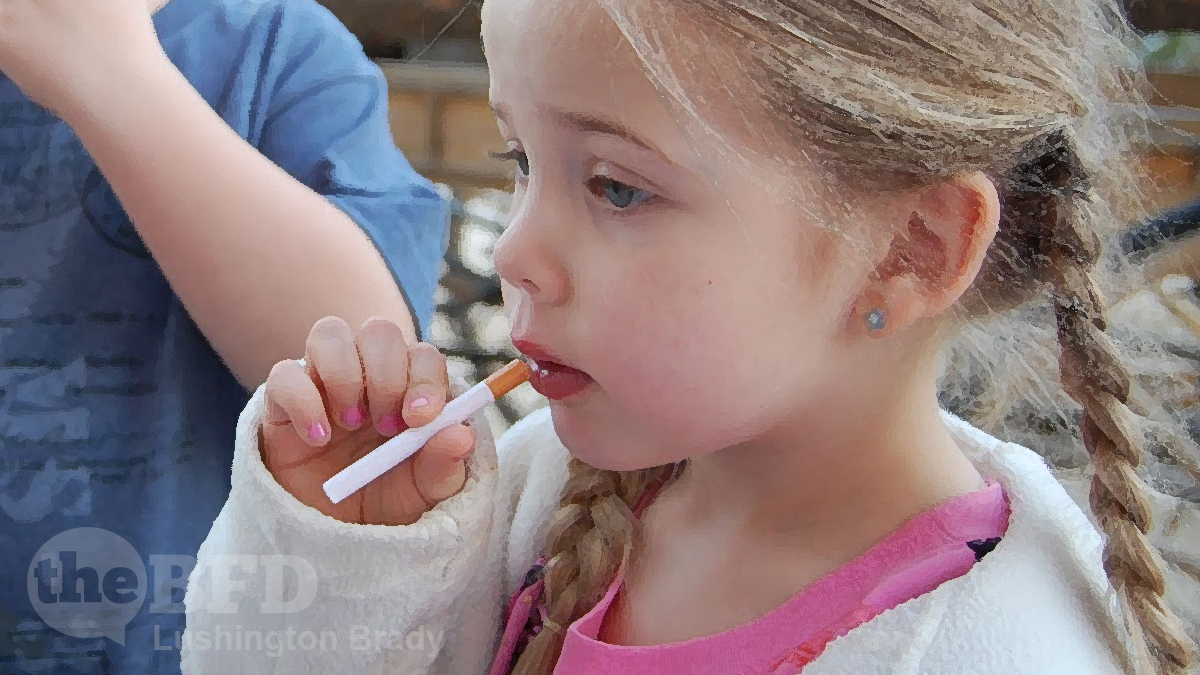One of the most damning indictments of the tobacco industry is that it for a long time it knew how harmful its products were – and lied about it.
Which makes Facebook the New Big Tobacco.
Because internal documents show that Facebook is well aware of how toxic its Instagram platform is, especially for young girls. Yet it keeps promoting it.
For the past three years, Facebook has been conducting studies into how its photo-sharing app affects its millions of young users. Repeatedly, the company’s researchers found that Instagram is harmful for a sizable percentage of them, most notably teenage girls.
“We make body image issues worse for one in three teen girls,” said one slide from 2019, summarizing research about teen girls who experience the issues.
“Teens blame Instagram for increases in the rate of anxiety and depression,” said another slide. “This reaction was unprompted and consistent across all groups.”
Among teens who reported suicidal thoughts, 13% of British users and 6% of American users traced the desire to kill themselves to Instagram, one presentation showed.
But, like tobacco companies in the past, Facebook is putting profits ahead of the health and wellbeing of its customers – and lying about what it knows.
Expanding its base of young users is vital to the company’s more than $100 billion in annual revenue, and it doesn’t want to jeopardize their engagement with the platform […]
In public, Facebook has consistently played down the app’s negative effects on teens, and hasn’t made its research public or available to academics or lawmakers who have asked for it.
“The research that we’ve seen is that using social apps to connect with other people can have positive mental-health benefits,” CEO Mark Zuckerberg said at a congressional hearing in March 2021 when asked about children and mental health.
In May, Instagram head Adam Mosseri told reporters that research he had seen suggests the app’s effects on teen well-being is likely “quite small.”
Those are not just mistakes, or even white lies: they’re knowing lies. Facebook is well aware of the toxic effects of its products, but, like Big Tobacco, it tries to hide the truth and lies to the public and to lawmakers.
The Instagram documents form part of a trove of internal communications reviewed by the Journal, on areas including teen mental health, political discourse and human trafficking. They offer an unparalleled picture of how Facebook is acutely aware that the products and systems central to its business success routinely fail.
The documents also show that Facebook has made minimal efforts to address these issues and plays them down in public.
The company’s research on Instagram, the deepest look yet at what the tech giant knows about its impact on teens and their mental well-being, represents one of the clearest gaps revealed in the documents between Facebook’s understanding of itself and its public position.
Facebook has put a lot of hard research into the effects of its products, using focus groups, large-scale surveys and diary studies. It employs data scientists and psychologists and what they have found is damning. Especially about Instagram.
While it’s tempting to broad-brush-damn all social media (and not always without reason), the reality is that, if Snapchat is weed, Instagram is krokodil.
Facebook’s research shows that other platforms are not nearly so toxic as Instagram. TikTok is “grounded in performance” – making silly dance videos; Snapchat pushes jokey filters that keep its tone lighthearted and fun. But Instagram focuses on body image and social comparison in a way that is devastating especially to teens.
The features that Instagram identifies as most harmful to teens appear to be at the platform’s core.
Like the Big Tobacco execs, Facebook’s bosses know all about it – and lie and mislead about it.
The research has been reviewed by top Facebook executives, and was cited in a 2020 presentation given to Mr. Zuckerberg, according to the documents.
At a congressional hearing this March, Mr. Zuckerberg defended the company against criticism from lawmakers about plans to create a new Instagram product for children under 13.
Wall Street Journal

At those hearings, Zuckerberg at least conceded that the company had studied the app’s effects on children, but the only information it released to senators excluded the company’s own studies – and misled them about what it knew. “We are not aware of a consensus among studies or experts about how much screen time is ‘too much’”, it wrote.
To be fair, Facebook is not just aware of the toxic effects of its products, it has pursued ways to minimise them. In small ways and so far without success. Nor is Instagram toxic to all users. But then, not everyone who smokes will get lung cancer. In fact, the rates of harm reported for Instagram users seems remarkably similar to the lifetime risk for all smokers.
That hasn’t stopped Facebook from aggressively pursuing younger and younger markets.
As US Senator Richard Blumenthal puts it, Facebook appears to be following the model of Big Tobacco: targeting children with products that it knows will cause harm to many of them, while lying about what it knows.
Please share this article so that others can discover The BFD

